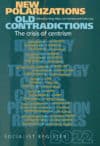
The 58th volume of the Socialist Register asks such questions as: Are the current tendencies towards polarization new, and if so, what is their significance? What underlying contradictions—between race, class, income, gender, and geopolitics—do the latest polarization trends expose? And to what extent can “centrist” politics continue to hold and contain these internal contradictions? This volume’s original essays examine the escalating polarization of national, racial, generational, and other identities, all in the context of growing economic inequality, new forms of regional and urban antagonism, “vaccine nationalism,” and the shifting parameters of rivalry between the “Great Powers.” | more…

Every year since 1964, the Socialist Register has offered a fascinating survey of movements and ideas from the independent new left. This year’s edition asks readers to explore just how we need to live with new technologies. Essays in this 57th Socialist Register reveal the contradictions and dislocations of technological change in the twenty-first century. And they explore alternative ways of living: from artificial intelligence (AI) to the arts, from transportation to fashion, from environmental science to economic planning. | more…

How can we build a future with better health and homes, respecting people and the environment? The 2020 edition of the Socialist Register, Beyond Market Dystopia, contains a wealth of incisive essays that entice readers to do just that: to wake up to the cynical, implicitly market-driven concept of human society we have come to accept as everyday reality. Intellectuals and activists such as Michelle Chin, Nancy Fraser, Arun Gupta, and Jeremy Brecher connect with and go beyond classical socialist themes, to combine an analysis of how we are living now with visions and plans for new strategic, programmatic, manifesto-oriented alternative ways of living. Crafted with purposeful hope in an age of despair, each essay in this volume aims to create a world of agency and justice. | more…

A World Turned Upside Down? poses two overarching questions for the new period opened by the Trump election and the continued growth of right-wing nationalisms. Is there an unwinding of neoliberal globalization taking place, or will globalization continue to deepen, but still deny the free cross-border movement of labor? | more…

For years, intellectuals have argued that, with the triumph of capitalist, liberal democracy, the Western World has reached “the end of history.” Recently, however, there has been a rise of authoritarian politics in many countries. Concepts of post-democracy, anti-politics, and the like are gaining currency in theoretical and political debate. Now that capitalist democracies are facing seismic and systemic challenges, it becomes increasingly important to investigate not only the inherent antagonism between liberalism and the democratic process, but also socialism. Is socialism an enemy of democracy? Could socialism develop, expand, even enhance democracy? | more…

One hundred years ago, “October 1917” galvanized leftists and oppressed peoples around the globe, and became the lodestar for 20th century politics. Today, the left needs to reckon with this legacy—and transcend it. Social change, as it was understood in the 20th century, appears now to be as impossible as revolution, leaving the left to rethink the relationship between capitalist crises, as well as the conceptual tension between revolution and reform. | more…

This fifty-second edition of the Socialist Register explores right-wing political forces and parties around the globe, bringing to bear the Register’s reputation for detailed scholarship and passionate engagement on some of the most troubling developments in world politics today. Contributors examine mobilizations of the right in a variety of countries by analyzing their social bases, their relationships with state institutions, and the reach of their influence on mainstream parties and opinion. This volume also addresses the historical transition from right-wing nationalism to ethnicism, the question of resurgent fascism, and how left parties should respond to challenges from the far right. | more…

This 51st annual Socialist Register completes the investigation of class formation and class strategies on a global scale begun with last year’s volume. Deploying an understanding of class as an historical social process—rather than an abstract sociological category or statistical artifact—the essays here investigate the concrete ways that working classes are being made and remade in the struggles against neoliberalism, austerity, and authoritarian governments. Taking stock of the changing balance of class forces as well as old and new forms of workplace, household and political organization, they uncover the class strategies being debated and adapted in different zones of the world. | more…
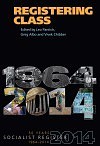
For fifty years, the Socialist Register has brought together some of the world’s leading radical thinkers to address the most pressing issues of the day. Independent, searching, and erudite analysis is the hallmark of the Socialist Register, and this fiftieth-anniversary issue is no exception. Contributors to Registering Class examine some of our assumptions about class in the light of the global economic crisis and the many forms of resistance it has produced. | more…
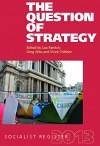
Socialist Register 2013 seeks to explore and clarify strategy for the Left in the light of new challenges and new opportunities. Socialists today have to confront two realities: that they cannot avoid the question of reforms and a gradualist path out of capitalism, and that the organizational vehicles for socialism will most likely have to abide by different structures and principles than those that dominated left politics in the 20th century. Though solutions are not obvious, Socialist Register 2013 interrogates these dilemmas and critiques some unhelpful radical thinking that obstructs the reconsideration of socialist strategy for the 21st century. It asks, how have the occupations of public squares around the world changed the political scene? What are the most useful forms of political organization in the new conjuncture? Which features of past organizational models should be retained, and which discarded? | more…
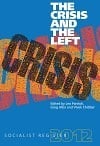
The global economic crisis that closed the first decade of the 21st century has demonstrated that the contradictions of capitalism cannot be overcome. The challenge for socialist analysis is to reveal both the nature of these contradictions in the neo-liberal era of globalized finance, and their consequences in our time. This volume, a companion to The Crisis This Time: Socialist Register 2011, examines the response of the international Left and asks, how has the Left responded and can it offer an alternative to faltering capitalism? | more…
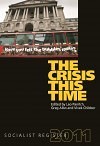
The global economic crisis that closed the first decade of the 21st century has demonstrated that the contradictions of capitalism cannot be overcome. The challenge for socialist analysis is to reveal both the nature of these contradictions in the neo-liberal era of globalized finance, and their consequences in our time. Crises need to be understood as turning points that open up opportunities. How to facilitate this is the sharpest challenge posed to socialists by the most severe global economic crisis since the 1930s. | more…

Morbid Symptoms sees health as a major field of political economy, one that focuses on the struggle between commercial forces seeking to make it into a field of profit, and popular forces fighting to keep it — or make it — a public service with equal access for all. | more…












